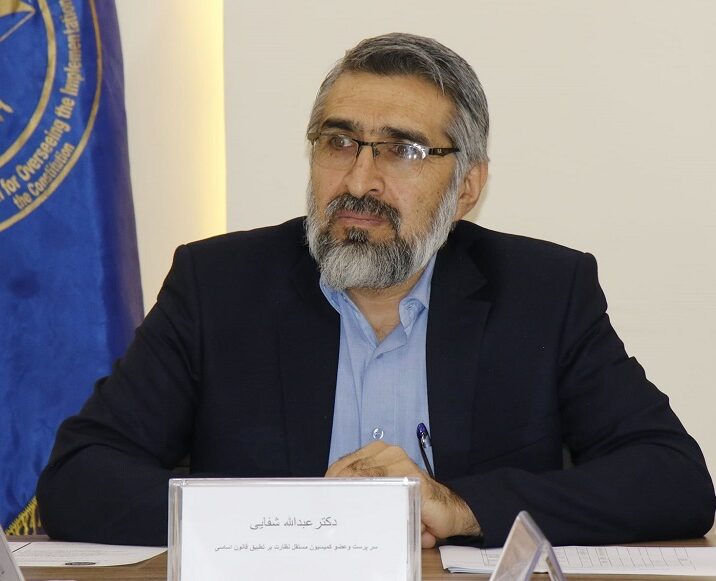 Silk Way weekly interview with Abdullah Shafaei, PhD in public and private law and former member of the Independent Commission for supervision of the implementation of the Constitution
Silk Way weekly interview with Abdullah Shafaei, PhD in public and private law and former member of the Independent Commission for supervision of the implementation of the Constitution
Silk Way Weekly: Dear Dr., we are glad that you gave the Silk Way Weekly newspaper the opportunity to have a legal discussion about the request to arrest the Taliban leader and judge for the crime of “crime against humanity” and “gender abuse”. You know that recently this request was submitted by Karim Khan, the chief prosecutor of the International Criminal Court. Has this court ever encountered a crime whose subject has been “sexual harassment.”
Dr. Shafaei: To clarify the topic of the discussion, it is good to point out that there should be a difference between sexual harassment and gender-based harassment. Although both concepts are directly related to human rights and social justice; But they are different in their own way.
Sexual harassment refers to any type of behavior, or action that leads to the violation of a person’s dignity or sexual rights. This type of harassment can include sexual assault, sexual harassment, and sexual humiliation or threats. This type of harassment usually focuses specifically on a person’s sexual characteristics and usually occurs based on a person’s gender or sexuality; But gender-based harassment refers more broadly to any violence or harassment that occurs because of a person’s gender, gender identity, or sexual characteristics. This harassment can also include sexual harassment; But its cases are generally much wider. Gender-based abuse can include psychological and emotional abuse; Such as insults and threats that are applied because of a person’s gender and physical abuse; Such as beating women because of the social or cultural roles that are expected of them and economic abuse such as not having access to job opportunities or financial resources because of being a woman, exclusions such as denying women education, work, or social rights because of their gender and cultural or social abuse such as pressuring women for not meeting certain standards. Therefore, harassment in sexual harassment is limited to sexual relations and behavior with sexual dimensions, but in gender-based harassment, any type of violence, discrimination, deprivation of rights and freedom is said to be applied because of a person’s gender. On the other hand, gender-based harassment refers more broadly to social, cultural, and economic discrimination based on a person’s gender identity, such as not having access to equal rights and opportunities because of gender.
 With this introduction, we will now answer the question. Since its establishment in 2002, the International Criminal Court (ICC) has dealt with war crimes, crimes against humanity, genocide and terrorist crimes, of which sexual harassment has been a part of them. Famous cases include cases in which armed groups have committed sexual crimes in various regions of the world, including Congo, Sudan, Sierra Leone, and the former Yugoslavia. These crimes have usually occurred in the form of rape, sexual enslavement, torture and sexual abuse during times of war or humanitarian crises. In these types of cases, the International Criminal Court and its affiliated courts, such as the Special Court for Rwanda, tried the people who committed these crimes.
With this introduction, we will now answer the question. Since its establishment in 2002, the International Criminal Court (ICC) has dealt with war crimes, crimes against humanity, genocide and terrorist crimes, of which sexual harassment has been a part of them. Famous cases include cases in which armed groups have committed sexual crimes in various regions of the world, including Congo, Sudan, Sierra Leone, and the former Yugoslavia. These crimes have usually occurred in the form of rape, sexual enslavement, torture and sexual abuse during times of war or humanitarian crises. In these types of cases, the International Criminal Court and its affiliated courts, such as the Special Court for Rwanda, tried the people who committed these crimes.
In terms of the recent case you mentioned, the request for the arrest of the leader and head of the Taliban court is for gender-based harassment, not sexual harassment. As we said, gender-based harassment has a wide range of crimes that result in massive violations of human rights, which include deprivation, restriction, and discrimination of Afghan women’s social, economic, political, and cultural rights due to their gender identity. This does not mean that the Taliban have not committed sexual abuse, but we have heard many times of rape, forced marriage and sexual torture. Rather, it means that the Taliban have committed a greater crime against women, which is harassment due to gender.
It seems that the criminal trial for the crime of gender-based discrimination is unprecedented and new at the International Criminal Court. The reason is that so far, no government or group in the world has committed such a widespread, systematic and open violation of women’s rights just because they are women, as the Taliban have done. Therefore, if the crime is unprecedented, the court proceedings are also unprecedented.
Silk Way Weekly: What was the investigation method of the International Criminal Court and with what documents and evidence did it accuse the Taliban of “crime against humanity” and “gender abuse”?
Dr. Shafaei: The request of Karim Khan, the chief prosecutor of the International Criminal Court (ICC), to arrest Taliban leaders on the charge of committing “sexual harassment” as a crime against humanity, has been submitted through complex legal and investigative processes. The International Criminal Court, as an independent and specialized body, uses different methods of investigation and evidence collection to deal with such cases. According to media reports, Karim Khan has mentioned several evidences in his request, including: human rights reports that have documented numerous sexual abuses by the Taliban. These reports usually include victim testimonies, legal information, and authentic documentation from internal and external sources.
Reports of non-governmental and international organizations; Such as the United Nations and “Human Rights Watch”, which have pointed out in detail the situation of women in Afghanistan and sexual and physical abuse.
Digital evidence and information such as images and videos that can indicate human rights violations by the Taliban.
Testimony of survivors and witnesses who can provide a detailed description of the Taliban’s behavior in dealing with women and girls. These testimonies were given by female victims who left Afghanistan in recent years and settled in other countries.
As a result, Karim Khan’s application is based on careful research and credible evidence, which includes documents, reports, testimonies and digital information. This evidence allows the International Criminal Court to accurately assess how the Taliban have systematically and extensively committed gender-based violence against women.
 Silk Way Weekly: Taliban have committed various crimes against women and girls in Afghanistan. Will the International Criminal Court deal with all these crimes?
Silk Way Weekly: Taliban have committed various crimes against women and girls in Afghanistan. Will the International Criminal Court deal with all these crimes?
Dr. Shafaei: Depriving women of education, work, recreation and presence in public places is an important part of the human rights violations that the Taliban have committed against women and girls in Afghanistan. The International Criminal Court (ICC) may consider the following to accurately assess crimes against humanity against women: sexual harassment and rape; strict restrictions on access to health and mental health services; Deprivation of freedom of movement and choice of clothing, including the compulsion to wear a burqa and being accompanied with a male relative when going out of the house and traveling, domestic violence such as beatings and torture; child marriage and forced marriage, social restrictions and women’s deprivation of the right to work and education; Harassment and psychological threats. . .
The International Criminal Court can look at these actions as crimes against humanity; Because many of these crimes have been systematically and widely committed against Afghan women and girls. All these actions can provide documentation for legal pursuit and prosecution of the Taliban for severe human rights violations. Issuing dozens of decrees, including the Propagation of Virtue and Prevention of Vice Law to exclude women from education, work and social activities, shows that misogyny or what is called sexual apartheid has become an unbreakable policy of the Taliban.
Silk Way Weekly: Taliban have crime of genocide, war crime and rape in their record. But why the International Criminal Court has only paid attention to “crimes against humanity”?
Dr. Shafaei: The question you raised is very important and shows the complexities that exist in the investigation and follow-up of crimes at the international level. The International Criminal Court (ICC) has a broad mandate to deal with war crimes, crimes against humanity, genocide and other serious human rights violations; But there are reasons why some crimes may receive more special attention in the early stages; But the following factors seem more important in this case:
A possible main reason for the ICC’s initial focus on “gender-based harassment” and related crimes is the severity and extent of these crimes in Afghanistan. Gender-based violence in the three years of Taliban rule is a systematic and organized crime, the documentation of which is much more extensive and clearer than other crimes. Also, sexual harassment, as a crime that leaves long-term psychological and physical effects on the victims, can have deep social and cultural effects on the society.
In recent years, international attention and attention of human rights institutions have increased on crimes against women and girls. International organizations and courts are paying more attention than ever to the urgent need to address sexual crimes and “gender-based harassment”. This issue may be due to the pressure from human rights institutions and the international community to clarify and deal with these crimes. Therefore, the International Criminal Court, as a global judicial body, usually starts with sexual crimes as a priority crime.
Another reason for the primary focus on sexual harassment could be better access to evidence and documentation. War crimes or genocide can present their own complexities in documenting, especially in situations where war and insecurity are intense. While sexual harassment has been publicly and documented in numerous reports, including the testimony of victims, witnesses and media reports. These evidences can be easily used in the court, and for this reason. So, it seems logical to pay attention to them by the ICC to start the investigation.
On the other hand, at the global level, women’s rights are currently one of the main priorities in the field of human rights. International institutions and human rights groups emphasize especially on eliminating sexual violence and discrimination against women. For this reason, paying special attention to sexual harassment as a part of “crimes against humanity” can also be consistent with these emphases.
Silk Way Weekly: This means that these crimes are not a priority for the International Criminal Court.
Dr. Shafaei: The International Criminal Court’s primary focus on sexual harassment and related crimes is for several reasons, including extensive documentation, human rights priorities, resource limitations, and the complexities of proving other crimes. However, this does not mean that other crimes such as genocide, war crimes or the destruction of cultural monuments are not pursued. Finally, the court may deal with these crimes at a later stage; But sexual harassment, in particular, has a special priority because of its deep and widespread effects in the world.
Note: Download the PDF version of the crime and punishment file here.


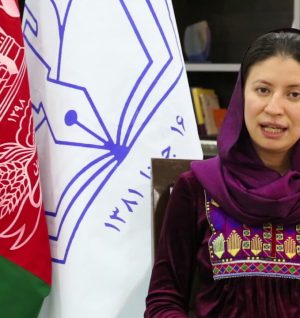

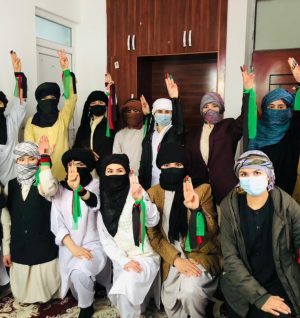

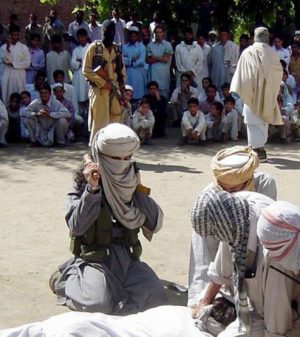
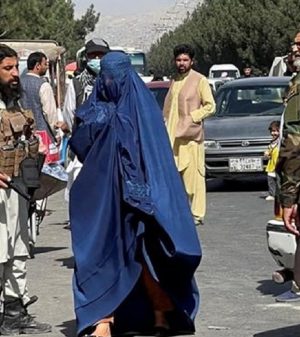

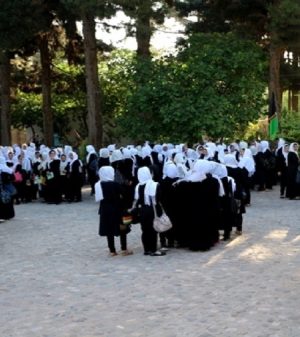
Add Comment